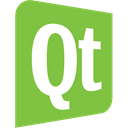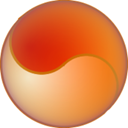Top pywebview Alternatives for Desktop App Development
pywebview is a fantastic lightweight cross-platform wrapper that enables you to build desktop applications using web technologies like HTML. It's often likened to a more compact Electron for Python, offering the power of web development without the hefty executable sizes. However, depending on your specific project requirements, development ecosystem, or desired features, you might be looking for a pywebview alternative. This article explores some of the best options available to help you choose the perfect tool for your next desktop application.
Discovering the Best pywebview Alternatives
While pywebview excels in its niche, the world of desktop application development with web technologies is vast. Here's a look at several robust alternatives that offer different strengths and cater to various development preferences.

Qt
Qt is a powerful and mature cross-platform application framework. While it's a Freemium and Open Source offering, it provides extensive capabilities for developing native applications across Mac, Windows, Linux, and BSD. Unlike pywebview's webview approach, Qt allows for more direct native UI development with a clean API, making it a strong pywebview alternative for projects demanding deep system integration or a fully native look and feel.

Electron
If you're comfortable with web technologies, Electron is an extremely popular Free and Open Source framework that lets you build native applications using JavaScript, HTML, and CSS. Available on Mac, Windows, Linux, and Web, it offers comprehensive features including a build system, cross-platform capabilities, and robust HTML5, CSS, and JavaScript support. While it tends to create larger executables than pywebview, Electron's vast ecosystem and community support make it a leading pywebview alternative for developers primarily working with web technologies.

GTK+
GTK+ is a Free and Open Source multi-platform toolkit for creating graphical user interfaces, offering a complete set of widgets. It's a solid choice for developers building applications for Mac, Windows, Linux, and Chrome OS. As a direct GUI toolkit, it offers a different approach to pywebview, focusing on native UI components rather than webviews, providing excellent cross-platform capabilities for those preferring a more traditional desktop application development route.

NW.js
Previously known as "node-webkit," NW.js is a Free and Open Source app runtime based on Chromium and Node.js. It allows you to write native applications in HTML and JavaScript for Mac, Windows, and Linux. Similar to Electron, NW.js empowers web developers to create desktop apps, making it a viable pywebview alternative if you're heavily invested in the Node.js ecosystem and desire direct access to Node.js APIs from your front-end code.

Sciter
Sciter is a Freemium solution that allows you to build cross-platform desktop applications using HTML and CSS. Available for Mac, Windows, and Linux, it provides a stack of GPU-accelerated web technologies specifically for desktop UI development. Sciter stands out as a lightweight pywebview alternative, offering efficient scripting and a focus on performance, which can be crucial for resource-sensitive applications.

DeskGap
DeskGap is a Free and Open Source framework designed for building cross-platform desktop applications with web technologies (JavaScript, HTML, and CSS). Supporting Mac and Windows, it offers a streamlined approach to leveraging your web development skills for desktop. As a lightweight alternative to more feature-heavy frameworks, DeskGap is a strong pywebview alternative for those seeking simplicity and efficiency in their cross-platform development.

fman build system
The fman build system (fbs) is a Free Personal, Paid, and Open Source framework for creating desktop applications for Windows, Mac, and Linux. Based on Qt and Python, it positions itself as a lightweight alternative to Electron, similar in spirit to pywebview's goal of small executable sizes. fbs makes it easy to create and distribute applications, making it an excellent pywebview alternative for Python developers who appreciate a more structured build process and Qt's power.

Chromely
Chromely is a Free and Open Source lightweight alternative to Electron.NET, specifically designed for .NET/.NET Core developers. Available for Mac, Windows, and Linux, it allows for the creation of desktop applications using web technologies. If your primary development stack is .NET and you're seeking a compact solution similar to pywebview's philosophy, Chromely is a compelling pywebview alternative, especially with its support for modern web frameworks like React.

azula
azula is a Freemium and Open Source lightweight alternative to Electron, built upon Ultralight, an embedding-friendly fork of WebKit known for its lower memory usage and smaller disk space footprint. Currently available for Windows, azula focuses on minimizing resource consumption. While it lacks explicit feature listings, its core premise of being extremely lightweight makes it an intriguing pywebview alternative for developers prioritizing minimal overhead on Windows platforms.
The choice of a pywebview alternative ultimately depends on your project's specific needs, your preferred programming languages, and your comfort level with different frameworks. Whether you prioritize executable size, extensive features, specific platform support, or integration with existing web technologies, there's a robust alternative out there to help you build your next great desktop application. Explore these options and find the perfect fit for your development journey.